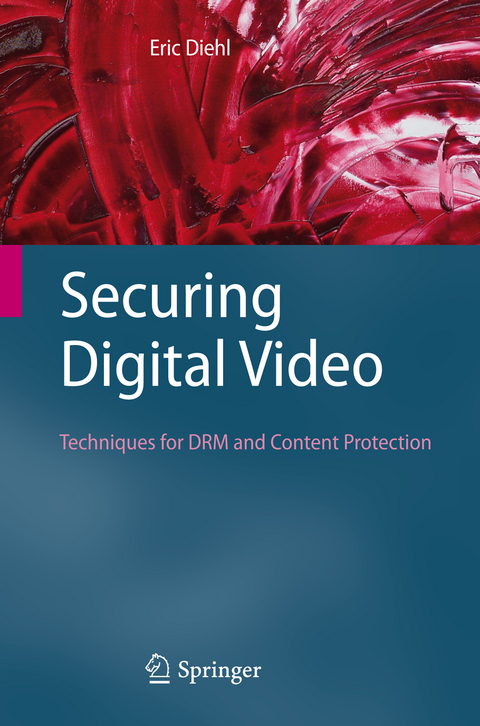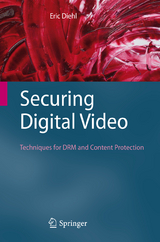Securing Digital Video
Springer Berlin (Verlag)
978-3-642-17344-8 (ISBN)
Content protection and digital rights management (DRM) are fields that receive a lot of attention: content owners require systems that protect and maximize their revenues; consumers want backwards compatibility, while they fear that content owners will spy on their viewing habits; and academics are afraid that DRM may be a barrier to knowledge sharing. DRM technologies have a poor reputation and are not yet trusted.
This book describes the key aspects of content protection and DRM systems, the objective being to demystify the technology and techniques. In the first part of the book, the author builds the foundations, with sections that cover the rationale for protecting digital video content; video piracy; current toolboxes that employ cryptography, watermarking, tamper resistance, and rights expression languages; different ways to model video content protection; and DRM. In the second part, he describes the main existing deployed solutions, including video ecosystems; how video is protected in broadcasting; descriptions of DRM systems, such as Microsoft's DRM and Apple's FairPlay; techniques for protecting prerecorded content distributed using DVDs or Blu-ray; and future methods used to protect content within the home network. The final part of the book looks towards future research topics, and the key problem of interoperability.
While the book focuses on protecting video content, the DRM principles and technologies described are also used to protect many other types of content, such as ebooks, documents and games. The book will be of value to industrial researchers and engineers developing related technologies, academics and students in information security, cryptography and media systems, and engaged consumers.
The author is the Vice President of the Security and Content Protection Labs at Technicolor (previously known as Thomson), and his main research topics are DRM for professional applications, audio and video watermarking, video fingerprinting, secure distribution of multimedia content, and copy protection. The author has more than 20 years of research experience, he has filed more than 80 patents in the field, and he is involved with the main related academic conferences as an organizer and contributor.
Introduction.- Why Protect Video?.- A Toolbox.- A Useful Model.- Current Video Ecosystems.- Protecting Broadcasts.- Protecting IP.- Protecting Prerecorded and Recordable Media.- Next Frontier - Interoperability.- Some Trends and Challenges.- Conclusions.
"The book is well written and timely, as content owners are struggling to protect their content and prevent loss of revenue. Much of the book is written in a manner suitable for novices to information security and content protection. The book will be useful for information security practitioners, researchers, faculty, students, and end users. Based on his rich research experience - he holds many patents in the field of digital content security - the author is well qualified to write this book. ... I strongly recommend this book for its intended audience." [S.V. Nagaraj, ACM Computing Reviews, 2013]
| Erscheint lt. Verlag | 28.6.2012 |
|---|---|
| Zusatzinfo | X, 266 p. |
| Verlagsort | Berlin |
| Sprache | englisch |
| Maße | 155 x 235 mm |
| Gewicht | 590 g |
| Themenwelt | Informatik ► Theorie / Studium ► Algorithmen |
| Schlagworte | Audio Watermarking • Broadcasting • Compliance • content protection • copy protection • Copyright • cryptography • Digitale Wasserzeichen • Digital Rights Management (DRM) • Digital Video • Information Security • Interoperability • Multimedia • Pay TV • Piracy • Protecting IP • tamper resistance • Video • Video Fingerprinting • video watermarking • Watermarking |
| ISBN-10 | 3-642-17344-6 / 3642173446 |
| ISBN-13 | 978-3-642-17344-8 / 9783642173448 |
| Zustand | Neuware |
| Haben Sie eine Frage zum Produkt? |
aus dem Bereich




